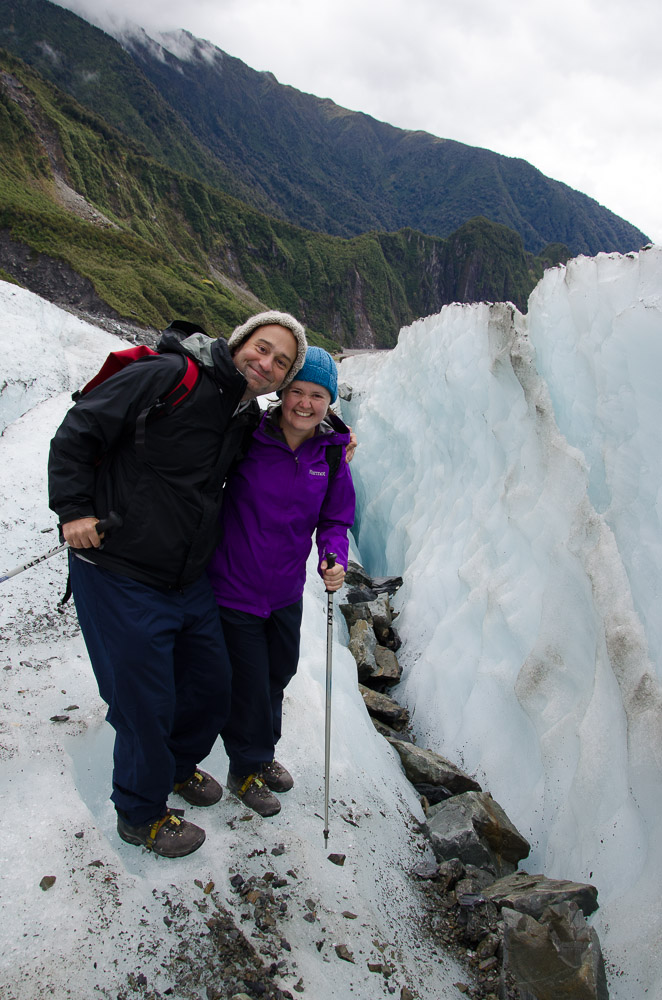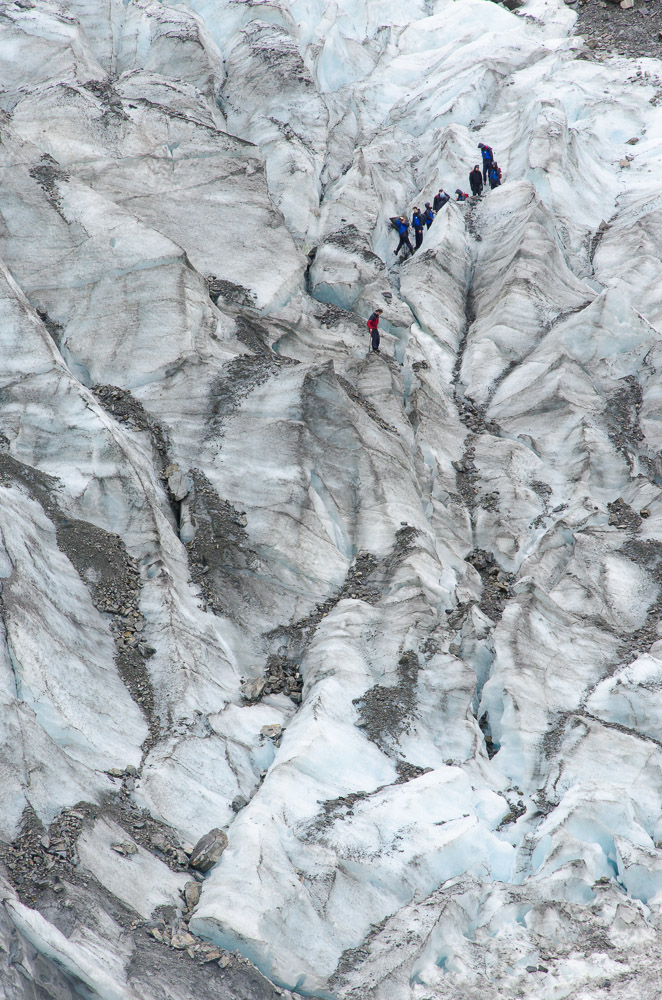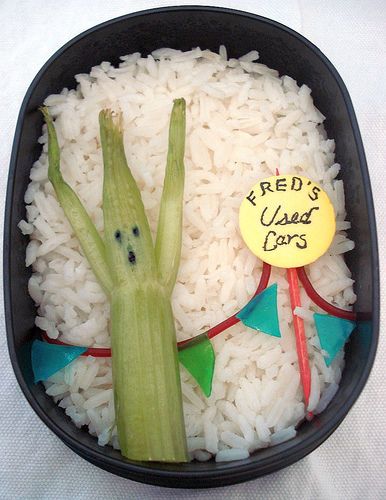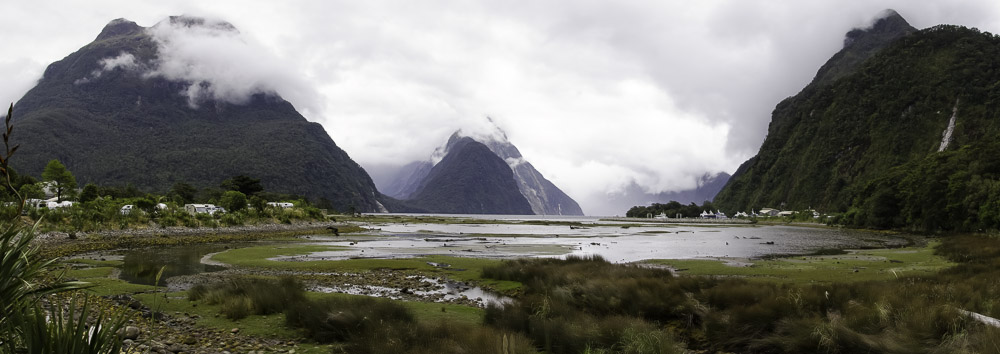
[I thought New Zealand Fortnight would be a good time to report on all the things we gave a go in New Zealand]
Why? Part of New Zealand’s charm is that it contains numerous geographical features that are not usually found together in one country, including glaciers. There are two famous glaciers on the west coast that you can hike on: Fox and Franz Josef. Unfortunately, Franz Josef glacier has receded to the point that you can only reach it by helicopter. We did think about doing the more adventurous heli-hike, but it didn’t seem worth the additional cost (and we’ve been in helicopters before–once while I was flying it!), so we just did the half-day hike. It turned out to be rainy, so the helicopters wouldn’t have flown anyway.

How did it go? It was fun! The glacier definitely looks more impressive when you’re on it, and it was cool to see different features like crevasses and tunnels relatively close up. The guides had carved out a path for the half-day hikes that went past a couple of different features, and we got to walk through a kind of fissure in the ice. I was a little jealous of the full-day hikers we saw who didn’t have to stick to a pre-marked path on the ice, so they could go looking for cooler features like ice tunnels (they also got full crampons, instead of half-shoe ones).
Would you do it again? I probably wouldn’t hike on just any glacier again. But, if we were near an especially impressive one, where we’d be able to walk through ice tunnels or something, I’d be interested.









